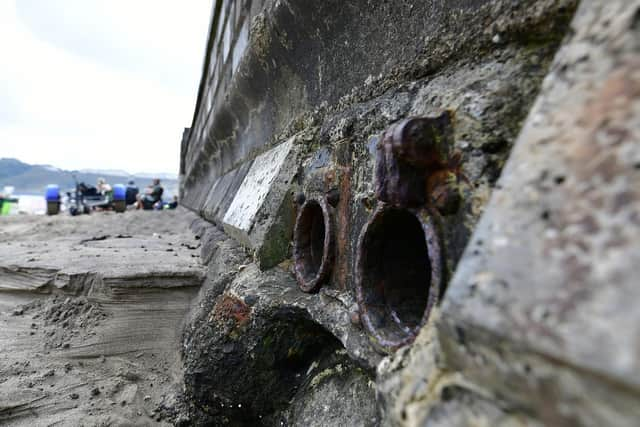The release of raw sewage into waterways is meant to be an exceptional event so why is it happening often - Andrew Brown
In December 2020 the River Wharfe in Ilkley became designated as the first place in Britain to be recognised as an official river bathing site. In January 2022 the Environment Agency revealed that the water there was of poor quality and the pollution included human and animal faeces.
It turned out that people had been encouraged to take to the water a couple of miles downstream from a sewage outlet.
Advertisement
Hide AdAdvertisement
Hide AdThe release of raw sewage into our rivers and the sea is meant to be an exceptional event that only takes place during extreme weather. Because the water that runs off streets gets mixed in the drains with waste coming from our homes there are times when the sheer quantity of rain water risks overwhelming water treatment plants and there is little choice other than to release the excess.


Those releases have increased by 2,553 per cent over the last few years. Whilst it is true that climate change has caused an increase in extreme weather events in recent times the weather hasn’t deteriorated that quickly. What has been changing is the choices that water companies make about when to release raw sewage.
Yorkshire has suffered 160,000 known spill events over the last five years. That means we are paying our bills for a service that dumps dangerous waste into our local environment once every 18 minutes.
Treating water is expensive. Releasing it into the environment is cheap. What was once a rare and unavoidable act in extreme circumstances has become a cynically routine way of saving money.
Advertisement
Hide AdAdvertisement
Hide AdThere is, of course, a government agency charged with the responsibility for overseeing these releases which carries the power to enforce the public interest and prevent casual releases of unpleasant substances that are a danger to public health and a risk to wildlife.
It has seen its budget for environmental protection work cut by over a half in real terms over a 10-year period in which inflation has eaten away at the value of money. In 2009-2010 the Environment Agency spent £170m on this work but by 2020-2021 this was down to £94m.
The consequences of these budget cuts and policy decisions that favour light touch regulation is that fewer regulators are monitoring more incidents and they are routinely relying on data issued by the water companies themselves for their information.
The Environment Agency has consequently become less effective and can only focus on some of the more serious incidents using evidence supplied by the people it is supposed to police.
Advertisement
Hide AdAdvertisement
Hide AdSome of the challenges that the water companies face are genuine and are not of their making. Many parts of Yorkshire have seen increased numbers of houses being built without any contribution by the developers being required to help update the sewage systems. An increased load is being flushed down ageing sewers at the same time as increased water usage is putting extra pressure on treatment plants.
Yet when The Yorkshire Post reports that raw sewage has been released into our waterways for more than 1,500,000 hours over the last six years something more sinister is also taking place. All too often a lack of effective regulation is being accompanied by deliberate decisions to use our rivers and coastlines as a cheap dumping ground for everything from used sanitary towels to the contents of your toilet.
Anglers are discovering sudden drops in fish stocks because of algal blooms and low water levels. Surfers fall off their boards and find themselves wrapped in horrible materials. Wild swimmers are discovering that it isn’t quite as healthy a hobby as they thought. Children with small cuts on their skin are at risk of disease as bacteria make contact with their bloodstreams.
If you find this unacceptable then you might like to know the name of the Minister that presided over one of the most extreme bouts of budget cuts for the Environment Agency. It is Liz Truss. Draw your own conclusions as to how quickly things are likely to improve.
Andrew Brown is a Craven District councillor representing Aire Valley with Lothersdale and the North Yorkshire councillor for Aire Valley.